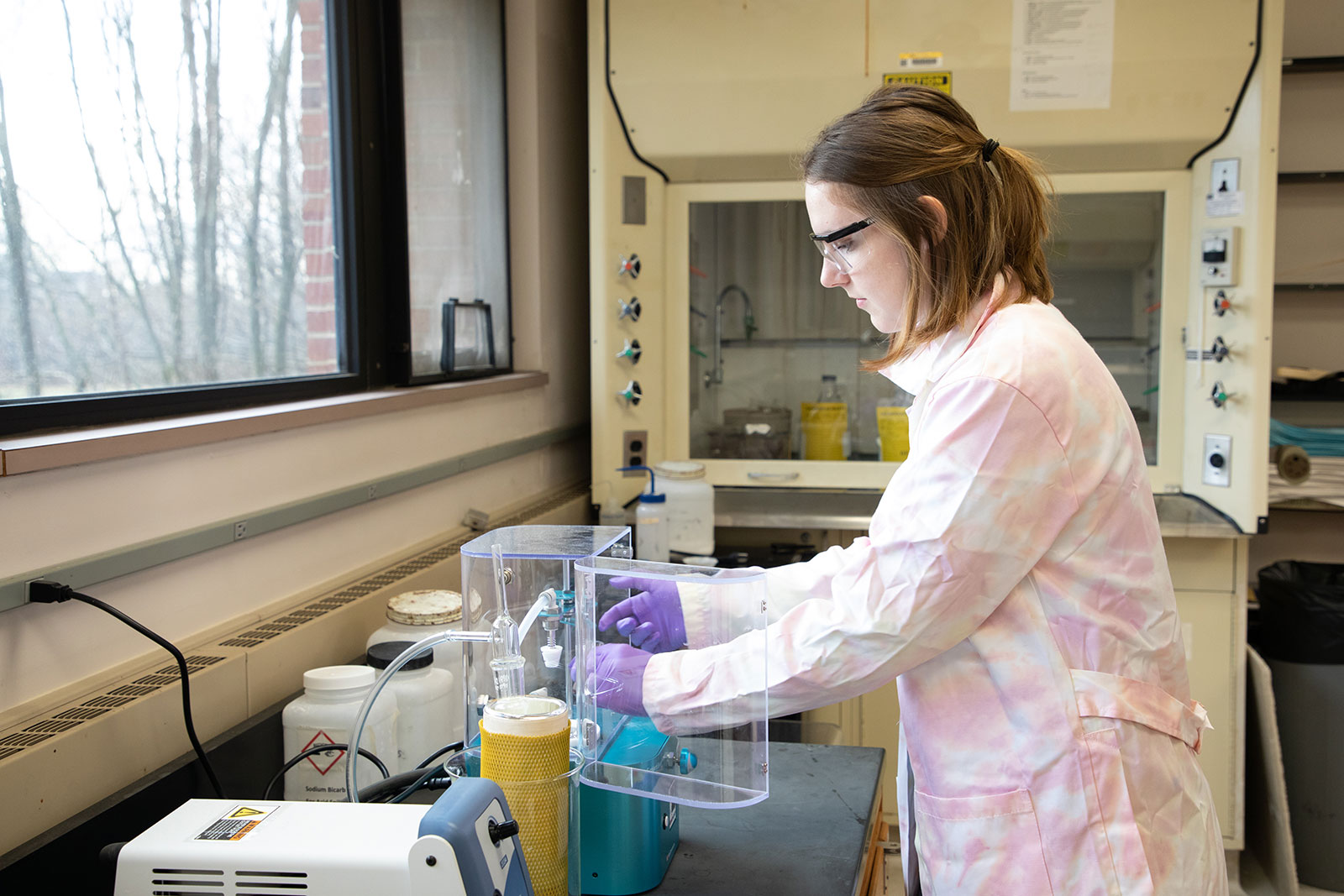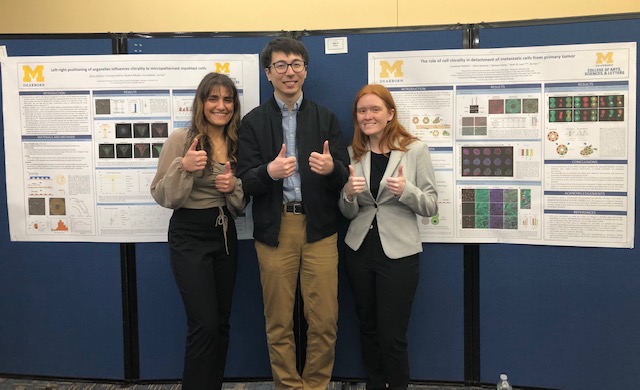Related Resources
Bridge the Biological Sciences and Chemistry
 Explore the intricate relationships at the intersection of biology and chemistry as a biochemistry major at the University of Michigan-Dearborn. With courses in biological sciences, chemistry, mathematics, and physics, you’ll gain a deep understanding of the structural and functional relationships between the chemical constituents of cells and their roles in life processes.
Explore the intricate relationships at the intersection of biology and chemistry as a biochemistry major at the University of Michigan-Dearborn. With courses in biological sciences, chemistry, mathematics, and physics, you’ll gain a deep understanding of the structural and functional relationships between the chemical constituents of cells and their roles in life processes.
You’ll have the opportunity to study environmental toxicology, mechanisms underlying the progression of chronic diseases, the biological uses of medicinal plants, the physical and chemical properties of proteins and nucleic acids, the techniques of preparative and analytical biochemistry, the molecular biology of eukaryotes, the biochemical and molecular basis of drug action, nutrition and metabolism, and many related subjects.
Where a Biochemistry Degree Will Take You
Our comprehensive biochemistry degree equips you with market-ready skills and knowledge for careers in industry, medicine, teaching and research. The degree also provides a solid foundation for graduate studies in the sciences and professional preparation programs for physicians, physician assistants, dentists, pharmacists, and veterinarians.

